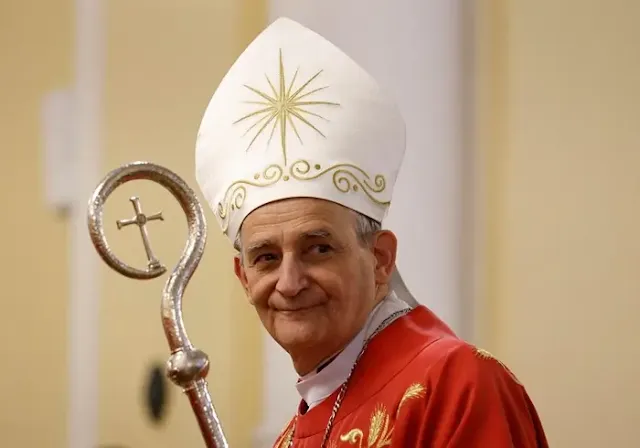Vatican City, May 8, 2025 — The Roman Catholic Church stands at a historic crossroads as 133 cardinal electors gather in the Sistine Chapel for the sacred task of choosing the next pope, following the death of Pope Francis on April 21. The event, known as a papal conclave, marks one of the most secretive and spiritually momentous proceedings in the Church’s tradition.
The conclave officially began on May 7, as cardinals from around the world entered the Vatican under solemn vows of secrecy. Black smoke billowed from the chapel’s chimney that evening, signaling an inconclusive first vote. The world now watches and waits for the white smoke—“fumata bianca”—that will announce the election of a new pope.
The Legacy of Pope Francis
Pope Francis, the first pontiff from the Americas and the first Jesuit to become pope, leaves behind a complex and transformative legacy. His papacy was marked by a strong emphasis on social justice, environmental responsibility, and outreach to marginalized communities. He also faced significant internal resistance as he pushed to reform the Vatican bureaucracy and emphasized a more pastoral, inclusive Church.
Francis’s influence looms large over the conclave, with many cardinals split between continuing his reformist vision or steering the Church back toward a more traditional approach.
Who is The New Pope 2025
As of May 8, 2025, the Catholic Church has not yet elected a new pope following the death of Pope Francis on April 21. The papal conclave commenced on May 7, with 133 cardinal electors convening in the Sistine Chapel to select the next pontiff. The initial round of voting concluded without a decision, as indicated by the emergence of black smoke from the chapel's chimney .
The conclave will continue with up to four voting sessions per day until a candidate secures a two-thirds majority, equating to at least 89 votes. The appearance of white smoke will signify the successful election of a new pope
As the Catholic Church convenes to elect a new pope following the passing of Pope Francis on April 21, 2025, several cardinals have emerged as prominent contenders. While the conclave's proceedings are confidential, experts and observers have identified key figures who may shape the future direction of the Church.
Leading Candidates for the Papacy
1. Cardinal Pietro Parolin (Italy)
Currently serving as the Vatican's Secretary of State, Parolin is considered a frontrunner. Known for his diplomatic acumen and moderate stance, he has been instrumental in shaping the Vatican's foreign policy, including the 2018 agreement with China. Parolin upholds traditional Church teachings on issues like same-sex marriage and euthanasia but has shown openness to revisiting clerical celibacy.
 |
| Pietro Parolin is the secretary of state for the Vatican (Reuters) |
2. Cardinal Luis Antonio Tagle (Philippines)
Often referred to as the "Asian Francis," Tagle embodies the progressive wing of the Church. He advocates for social justice, supports the inclusion of divorced and remarried Catholics, and emphasizes compassion towards marginalized groups. His leadership could signify a continued emphasis on outreach and inclusivity.
 |
| Luis Antonio Tagle has shared his support for gay people (AFP/Getty) |
3. Cardinal Péter Erdő (Hungary)
As the Archbishop of Esztergom-Budapest, Erdő represents the conservative faction within the Church. He has expressed reservations about recent reforms, including the blessing of same-sex couples, and maintains traditional views on issues like Communion for divorced and remarried Catholics. Erdő's election could signal a return to more traditional doctrines.
 |
| Peter Erdo became a cardinal in 2003 (AFP via Getty) |
4. Cardinal Peter Turkson (Ghana)
Turkson has been a prominent advocate for social and environmental justice. His leadership roles within the Vatican have focused on promoting integral human development. If elected, he would become the first African pope in modern times, reflecting the Church's growing presence in the Global South.
 |
| Ghanaian Peter Turkson could become the first Black pope – but his ideology is all too familiar (Reuters) |
5. Cardinal Matteo Zuppi (Italy)
The Archbishop of Bologna, Zuppi is known for his pastoral approach and commitment to social issues. He has been involved in peace negotiations and is considered a progressive voice within the Italian Church. His election could continue the emphasis on dialogue and social engagement.
 |
| Matteo Zuppi became a cardinal in 2019 (AFP/Getty) |
6. Cardinal Pierbattista Pizzaballa (Italy)
Serving as the Latin Patriarch of Jerusalem, Pizzaballa has extensive experience in interfaith dialogue and Middle Eastern affairs. His unique background and commitment to peace initiatives make him a notable candidate, though his relative youth and recent elevation to cardinal may be factors in the conclave's decision.
 |
| Cardinal Pizzaballa has emerged as a favourite (AP) |
While these figures are among the most discussed, the conclave's outcome remains uncertain, influenced by a myriad of theological, geographical, and political considerations.
What’s at Stake
The next pope will inherit a global Church facing complex challenges, including declining participation in Europe, explosive growth in the Global South, clergy abuse scandals, and debates over doctrine and inclusivity. The new pontiff’s ability to unite a fractured Church while responding to the modern world will be crucial.
For now, the world waits—prayerful, curious, and hopeful—for the smoke to change color and for the name of the next shepherd of 1.3 billion Catholics to be announced.
